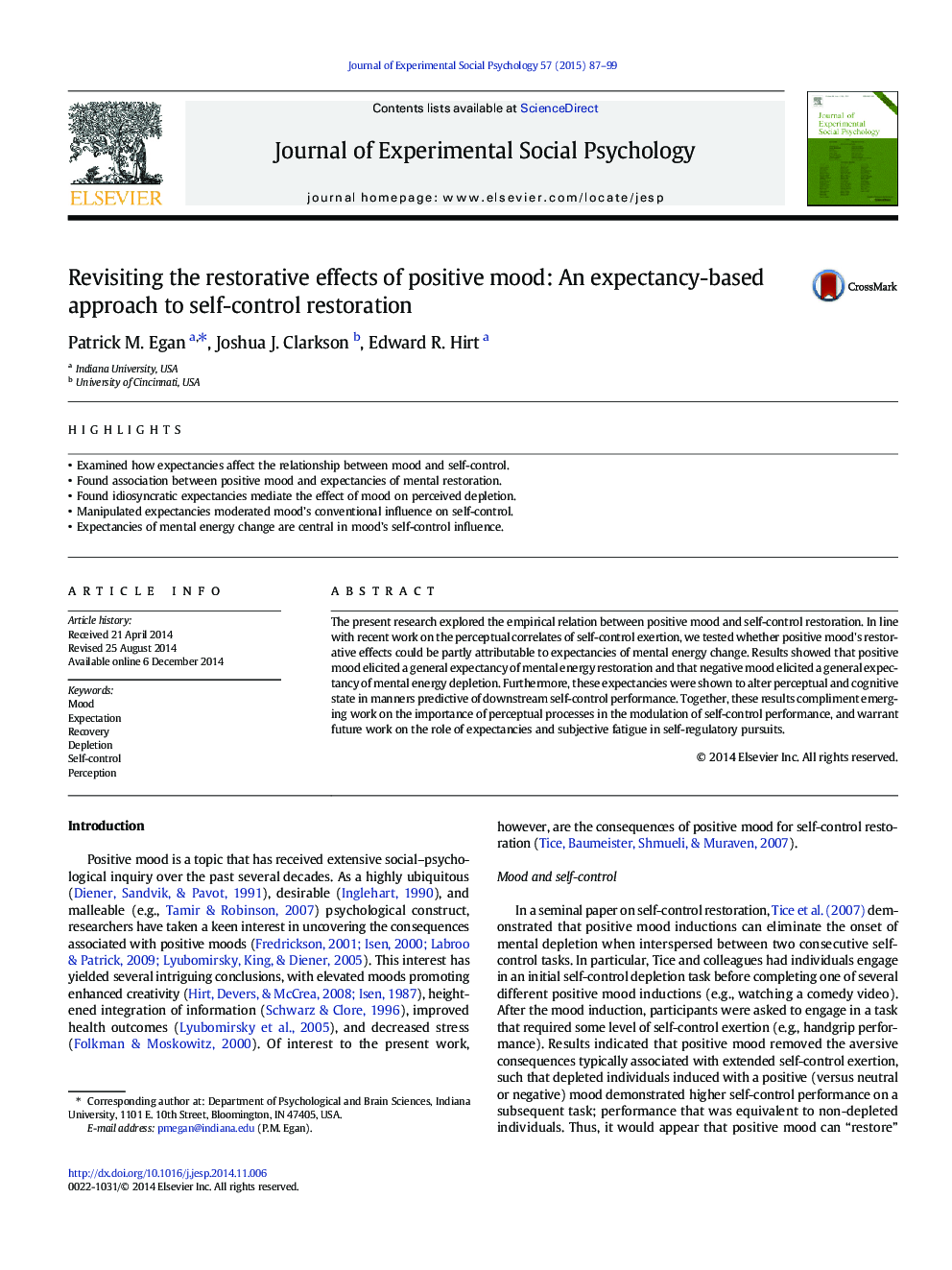| Article ID | Journal | Published Year | Pages | File Type |
|---|---|---|---|---|
| 947790 | Journal of Experimental Social Psychology | 2015 | 13 Pages |
•Examined how expectancies affect the relationship between mood and self-control.•Found association between positive mood and expectancies of mental restoration.•Found idiosyncratic expectancies mediate the effect of mood on perceived depletion.•Manipulated expectancies moderated mood’s conventional influence on self-control.•Expectancies of mental energy change are central in mood’s self-control influence.
The present research explored the empirical relation between positive mood and self-control restoration. In line with recent work on the perceptual correlates of self-control exertion, we tested whether positive mood's restorative effects could be partly attributable to expectancies of mental energy change. Results showed that positive mood elicited a general expectancy of mental energy restoration and that negative mood elicited a general expectancy of mental energy depletion. Furthermore, these expectancies were shown to alter perceptual and cognitive state in manners predictive of downstream self-control performance. Together, these results compliment emerging work on the importance of perceptual processes in the modulation of self-control performance, and warrant future work on the role of expectancies and subjective fatigue in self-regulatory pursuits.
